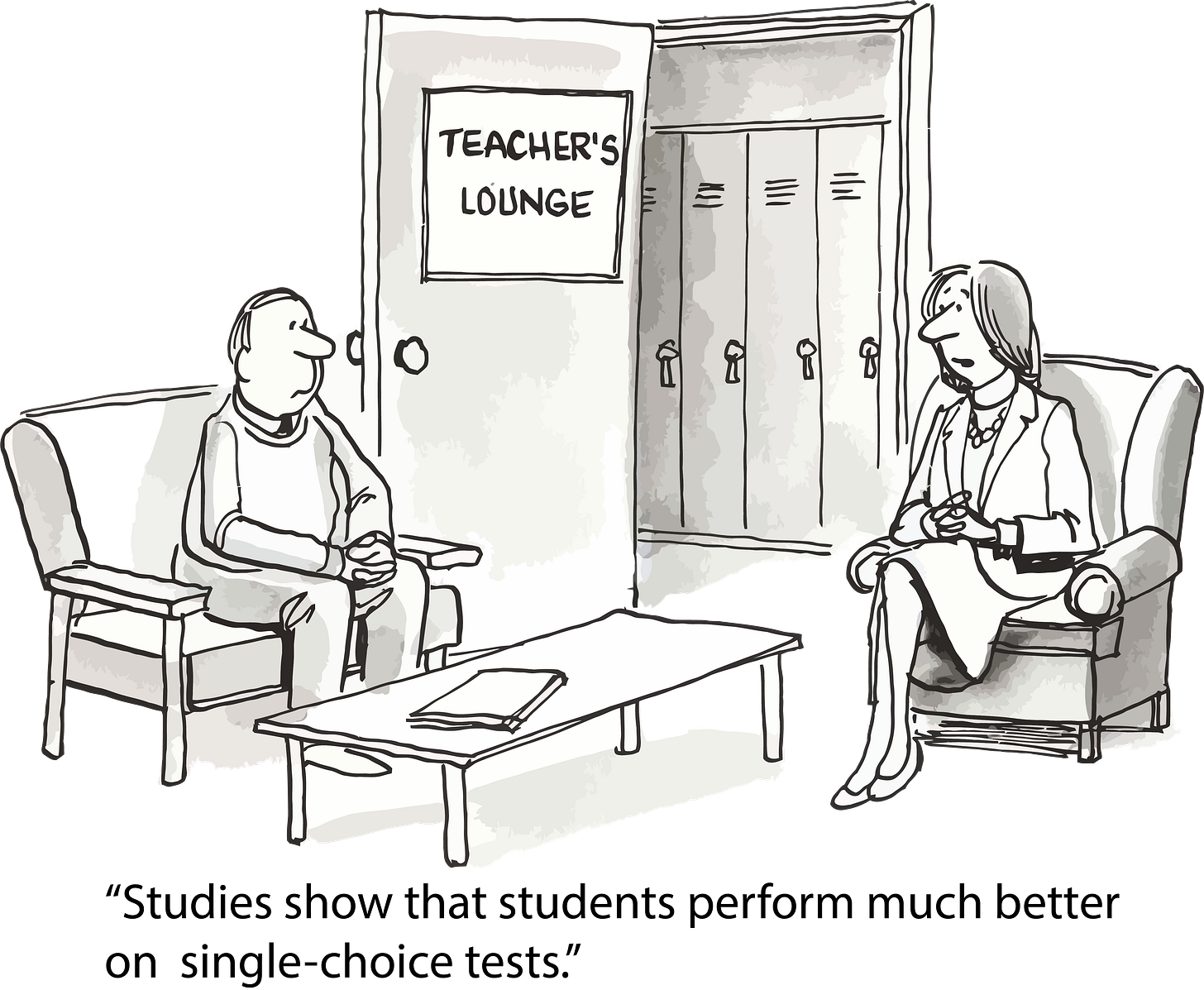Human Memory V
4-5 Minute Read
Author: Bruce Morgenstern, MD
Purpose
To establish an understanding of the processes of memory and memory formation to assist in promoting student learning so that teaching faculty are better prepared.
Learning Objectives
Distinguish between memory and learning; and
Enumerate evidence-based processes to improve retrieval – finally!
In this module, we will get to the reason behind the previous modules (Human Memory I, Human Memory II, Human Memory III, and Human Memory IV). How can we help our learners (big group here, includes our colleagues, our students and residents, and our patients and their families – not to mention ourselves!) learn what we hope that they’ll learn.
I. Memory v. Learning
According to Dr. Feldman, in Understanding Psychology learning is a relatively permanent change in behavior brought about by experience, whereas memory is the process by which we encode, store and retrieve information.(1)
Clearly, learning and memory are related concepts, but they do differ. Learning is, importantly, dependent on memory formation and retrieval. Similarly, there is a difference between education and training. Educators often talk about the acquisition of knowledge, skills, and attitudes by learners. Tying a shoelace is a skill (v.i.,[some Latin here, stands for vide infra, or see below, which of course we simply could have typed in the first place]), for which training suffices. Clinical reasoning requires having been educated about the process and having the necessary knowledge, skills, and the attitudes.
II. Memory Formation and Retrieval
In previous briefs, we’ve discussed memory formation and retrieval – not enough to get an advanced degree, but enough to be a bit conversant. At lot of the knowledge we expect of health professions learners is factual/rote knowledge. We expect more, but, honestly, it’s a lot easier to develop objective assessments of factual knowledge. If we accept the premise that learning is the acquisition of knowledge, skills, and attitudes, imagine how difficult it can be to assess the latter 2!
III. Spaced Learning
We often assume that we learn facts better by studying – and often reviewing the same material over and over again (exemplified by those who read and re-read, each time with a different color highlighter). In fact, that’s neither efficient nor effective. (Much of what is in this section comes from the book Make It Stick: The Science of Successful Learning by Peter Brown, Henry L. Roediger & Mark A. McDaniel– it’s 336 pages).(2)
So, what are better ways to learn/remember/enhance retrieval? We’re glad you asked. One of the methods with the best evidence goes under several names, but spaced learning and spaced repetition are two of the most common ones. There’s evidence in the training of urology residents that this is effective even after graduating medical school.(3)
The principles are simple: 1) deliberate practice – not random, not unobserved/unassessed. 2) retrieval practice – working to remember things over and over. 3) Re-learning if needed. In the urology resident example there was an emailed quiz at specified intervals. The residents could see what they remembered and what they did not, and they could “relearn” that which they didn’t recall. They then remodeled the old memories and developed more facilitated neuronal pathways for retrieval (theory, not demonstrated anatomically or by fMRI). Recall was better and persisted for 2 years.(3)
The image below is a schematic of the reduction in “forgetting” associated with spaced repetition.
From the “sometimes a picture requires 1000 words” perspective, the colored curves to the right of the red curve (baseline) represent the duration of accurate recall with increasing episodes of repetition based on active recall, also known as retrieval practice. Apparently, it helps if the road to a memory is paved with repetitive use (we may have mixed our metaphors here, but you get the picture). The theory here is also called the testing effect,(4) and there is good evidence in humans to support this theory.
IV. Interleaving
It also turns out that blocking, the studying one subject at a time, or focusing on one skill (hitting a fastball) at a time, is also neither efficient nor effective.(2,5) It’s counterintuitive, but mixing it up is better for recall and performance. One definition of interleaving, which is the term for mixing it up, comes from Samani and Pan’s Interleaved practice enhances memory and problem-solving ability in undergraduate physics: “Interleaving involves switching between topics (or skills, concepts, categories, etc.) during learning (e.g., studying concepts A, B, and C using an “A1B1C1A2B2C2A3B3C3” schedule).”(5)
Practical Parenting Tip — assuming there are still shoes with laces. Learning to tie shoes (or sutures for that matter) involves developing muscle memory. Per Wikipedia: “muscle memory is a form of procedural memory that involves consolidating a specific motor task into memory through repetition…When a movement is repeated over time, a long-term muscle memory is created for that task, eventually allowing it to be performed with little to no conscious effort.”(6)
Improvement in the consolidation and retrieval of muscle memory is enhanced by interleaving with deliberate practice. So, teaching a child to tie a shoelace needs deliberate practice (not just when you’re in a rush to get out the door), retrieval practice (a subset of deliberate practice) and is best interleaved with some other muscle-memory skill, like learning to write one’s name.
References
Feldman RS. Understanding Psychology. Fifteenth edition. McGraw-Hill Education; 2021.
Brown PC. Make It Stick: The Science of Successful Learning. The Belknap Press of Harvard University Press; 2014.
Kerfoot BP. Adaptive Spaced Education Improves Learning Efficiency: A Randomized Controlled Trial. Journal of Urology. 2010;183(2):678-681. doi:10.1016/j.juro.2009.10.005
Testing effect - Wikipedia. Accessed July 19, 2023. https://en.wikipedia.org/wiki/Testing_effect
Samani J, Pan SC. Interleaved practice enhances memory and problem-solving ability in undergraduate physics. npj Sci Learn. 2021;6(1):32. doi:10.1038/s41539-021-00110-x
Muscle memory - Wikipedia. Accessed July 19, 2023. https://en.wikipedia.org/wiki/Muscle_memory


